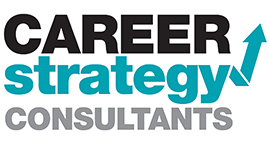Unlocking HR Potential: How ChatGPT Can Revolutionize Daily HR Responsibilities


In today’s rapidly evolving business landscape, HR professionals must stay on top of emerging trends and leverage cutting-edge tools to increase efficiency and improve employee experiences. One such tool is ChatGPT, an AI-powered language model developed by OpenAI. This revolutionary technology can be integrated into various HR tasks, streamlining processes and providing valuable insights. In this blog, we’ll explore how ChatGPT can transform daily responsibilities for HR professionals.
Recruitment and Candidate Screening
ChatGPT can be utilized to efficiently screen resumes and cover letters, helping HR professionals identify top candidates based on predetermined criteria. It can also assist in crafting personalized interview questions, ensuring a thorough evaluation of applicants’ skills and experience.
Onboarding and Employee Training
With ChatGPT, HR teams can create interactive training materials and onboarding resources tailored to individual employees. The AI can generate FAQs, training modules, and other informative content that enhances the learning experience and accelerates the onboarding process.
Employee Communication and Support
ChatGPT can serve as a virtual assistant, providing immediate support and answering employees’ questions related to company policies, benefits, and other HR-related topics. By automating repetitive tasks, HR professionals can focus on more strategic and value-added initiatives.

Performance Evaluation and Feedback
AI-driven language models like ChatGPT can help HR teams analyze employee performance by identifying trends, strengths, and areas for improvement. The AI can generate comprehensive and unbiased performance reports, as well as suggest personalized development plans for employees. This enables HR professionals to provide more effective feedback and support employee growth.
Policy and Procedure Development
ChatGPT can assist HR professionals in developing and updating company policies and procedures, ensuring they align with industry best practices and legal requirements. The AI can review existing documentation and suggest improvements, keeping the organization compliant and up-to-date.
Employee Engagement and Retention
By analyzing various data points, ChatGPT can help HR teams identify factors that contribute to employee engagement and retention. The AI can generate insights and recommendations for improving workplace culture, fostering a more positive and productive work environment.
Diversity and Inclusion Initiatives
ChatGPT can support HR professionals in creating inclusive workplace policies and practices. The AI can analyze employee demographics, assess the organization’s diversity and inclusion status, and provide actionable recommendations for improvement.
Talent Management and Succession Planning
Using AI-driven analytics, ChatGPT can help HR teams identify high-potential employees and create personalized career development plans. This enables organizations to prepare for future leadership needs and retain top talent.
HR Analytics and Reporting
ChatGPT can streamline HR reporting by automating the analysis of various metrics, such as employee turnover, time-to-fill, and employee satisfaction. The AI can generate insightful reports, helping HR professionals make data-driven decisions and optimize their strategies.

Conclusion
By integrating ChatGPT into daily HR responsibilities, organizations can enhance efficiency, improve decision-making, and create a more engaging workplace experience for employees. As AI technology continues to advance, the potential applications for HR professionals will only grow, driving further innovation and transformation in the field.

More Than Just Staffing
For Employers
For Individuals
